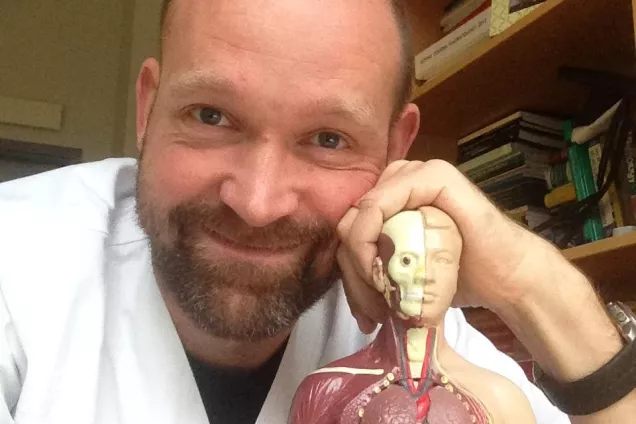Kees-Jan Pronk
WCMM Clinical Researcher | Hematopoietic & Immune Development
Our research
Hematopoietic cell transplantation (HCT) is often considered a last treatment resort for a number of serious diseases, including malignancies. Prior to HCT, high doses of chemotherapy are administered to the patients in means to eliminate the underlying malignancy such as leukemia. Also, it aims to create space for donor hematopoietic stem cells (HSCs) to settle in bone marrow niches and reconstitute the patients’ blood cell system.
At the Childhood Cancer Center in Lund, parental donors are often used in such setting, referred to as haploidentical (haplo-) HCT. In our research, we aim to study a number issues concerning initiation, treatment and toxicity in pediatric leukemia, as well as to study hematological reconstitution after haplo-HCT.
Aims
The overall aim to increase efficacy and decrease treatment related complications in pediatric acute leukemia.
- In preclinical models investigate what factors guide HSC function following HCT, with a focus on the inflammatory cytokine TNF and transcriptional repressor Bmi1.
- As BMI1 is highly expressed in some pediatric leukemia’s, we will investigate if BMI1 expression drives leukemogenesis and evaluate if BMI1-inhibition is a potential treatment modality
- We have established a murine Haplo-HCT model to assay how hematological and immunological function is re-established in a haploidentical, vs HLA-identical environment. In addition, we will evaluate how extended graft manipulation impacts graf-versus-tumor actions in established murine acute leukemia.
- In a Nordic clinical study called ALL-STAR, we study late toxicity following treatment for acute lymphoblastic leukemia in pediatric survivors, with a focus on immune reconstitution.
Lastly, Pronk is co-PI on the upcoming treatment protocol for pediatric AML (CHIP-AML22 study) that will be performed within the NOPHODB-SHIP consortium (Nordic and Baltic countries, Netherlands, Belgium, Spain, Israel, Portugal, Hongkong, Uruguay and Switzerland.
Strengths of the group
I am actively participating in clinical patient care, as well as performing both clinical and pre-clinical research. Other group members also represent this diversity in that we have one preclinical post-doc and laboratory engineer, 2 clinical PhD-students and 1 clinical researcher/PI in our group.
In addition, we operate within a rather tight network in pediatric oncology both nationally and internationally. This structure allows us both to perform translational research and gives us access to sufficient numbers of patients
Impact
The preclinical models aim to identify possible treatment possibilities for future use. The ALL-STAR project evaluates to what extent current treatment confers toxicities and helps to develop follow-up programs in surviving patients. The AML-study evaluates treatment intensification in some patients to increase efficacy, whereas at the same time treatment is deescalated in other patients to avoid unnecessary toxicity whilst maintaining similar survival rates.
Affiliations
- Wallenberg Center for Molecular Medicine
- Lund Stem Cell Center
- Childhood Cancer Center, Skåne University Hospital, Lund
- Division Molecular Hematology, Lund University
- Department Pediatrics, Lund University

Kees-Jan Pronk
Principal Investigator
Phone: +46 73 440 64 12
Email: kees-jan [dot] pronk [at] med [dot] lu [dot] se

